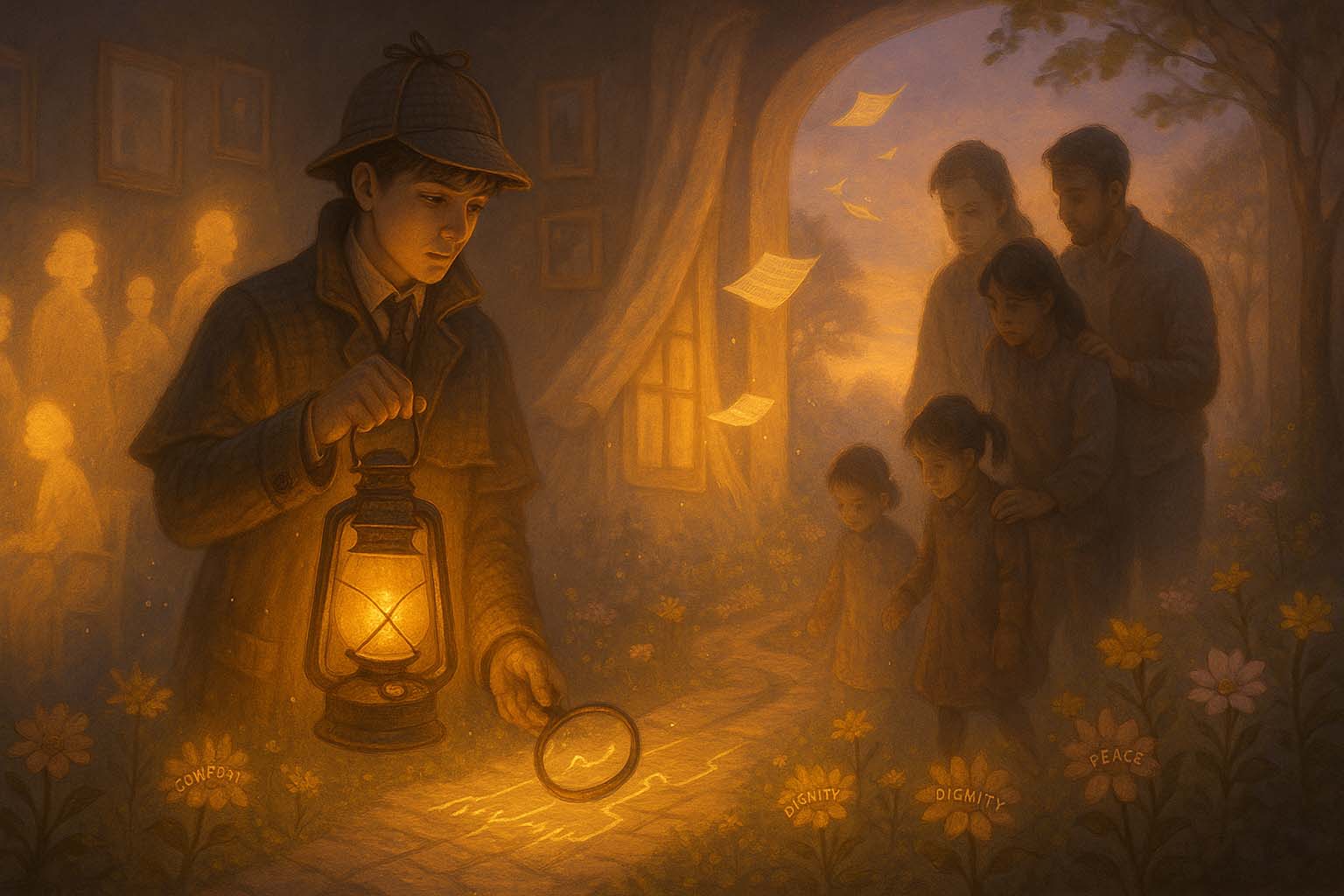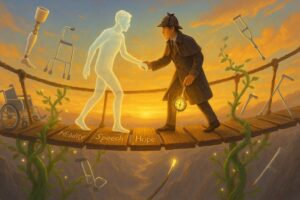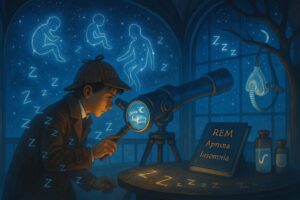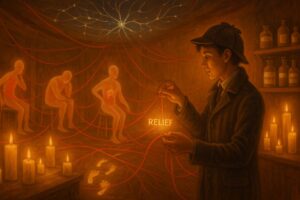
Palliative Medicine
- Posted by admin
- Categories Complex & Integrated Medicine
- Date May 23, 2025
- Comments 0 comment
The End-of-Journey Detective’s Domain – Cracking the Cases of Comfort, Meaning, and the Medicine of Presence
1. Introduction: The Scene of the Specialty
Step into the shoes of a Palliative Medicine sleuth.
This is the terrain beyond cure, where the goal shifts from fixing to honouring. Palliative Medicine detectives attend to pain that’s more than physical, questions that can’t be answered in scans, and stories nearing their final chapters. Their work is less about decoding disease, and more about listening deeply for what matters now. Welcome to a world where every sigh, silence, and symptom is a clue to the needs of the whole person—and their family.
2. Key Mysteries They Solve (Common Conditions & Contexts)
These detectives specialise in solving cases involving:
- Pain and Symptom Management – from cancer pain to terminal dyspnoea or nausea.
- End-of-Life Decision Making – when to continue, when to stop, and how to transition.
- Emotional and Spiritual Distress – uncovering fear, grief, regret, and unfinished business.
- Family Dynamics and Legacy Planning – complex relational puzzles that emerge under pressure.
Each case requires more than a clinical answer—it needs human interpretation and relational clarity.
3. Their Trusted Tools & Techniques
Every detective has their kit—and in Palliative Medicine, tools may include:
- Opioid and Adjuvant Medications – used with precision and care.
- Advanced Care Planning – documenting wishes, values, and choices clearly.
- Narrative History-Taking – asking not just what hurts, but what matters.
- Multidisciplinary Collaboration – working with nurses, chaplains, counsellors, and social workers.
This is medicine where words can soothe as much as morphine.
4. The Charms of This Field: Why It Captivates the Curious
- Profound Humanity: You meet people at their most vulnerable—and most authentic.
- Holistic Care: Physical, emotional, spiritual, and relational elements all matter.
- Narrative Richness: Every patient’s story becomes a final masterpiece.
- Quiet Skill: Pain control, existential presence, and dignified decision-making.
This is medicine for the heart, practiced by those unafraid to walk toward suffering with compassion and clarity.
5. Challenges: The Toughest Cases They Face
- Emotional Intensity – Holding space for grief, fear, anger, and loss.
- Cultural and Religious Differences – Navigating diverse values around death and care.
- Prognostic Uncertainty – Balancing hope with honesty in sensitive timing.
- Moral Dilemmas – Complex family disagreements or questions around euthanasia and withdrawal of treatment.
But the seasoned palliative physician knows: you don’t need to fix everything—you just need to be fully present.
6. Famous Cases and Hallmark Clues
- The “Classic Presentation” – Terminal cancer with escalating pain and reduced appetite.
- The “Zebra” – Young adult with neurodegenerative disease facing anticipatory grief.
- The “Aha Moment” – Realising breathlessness isn’t just physical—it’s linked to panic, past trauma, or meaninglessness.
7. Your Training Trail: How to Join the Investigation
To become a Palliative Medicine detective:
- Train first in general medicine, oncology, geriatrics, or general practice—this field draws from all.
- Learn communication mastery: breaking bad news, navigating goals of care, holding emotional space.
- Practise symptom control with nuance—small dose changes, big impact.
- Cultivate deep self-awareness: your presence is part of the medicine.
Whether walking beside someone in their final days or helping families prepare for loss, your care will echo beyond the clinical.
8. Final Words: The Signature of the Palliative Medicine Detective
Palliative detectives seek not just what’s wrong, but what’s left to live for.
They journey with those facing the end—not to cure, but to comfort, witness, and affirm.
They know that endings matter—and that how we leave life is as important as how we lived it.
So if you’re drawn to the medicine of meaning, of dignity, of presence—
then this is the sacred ground you’re called to tread.



